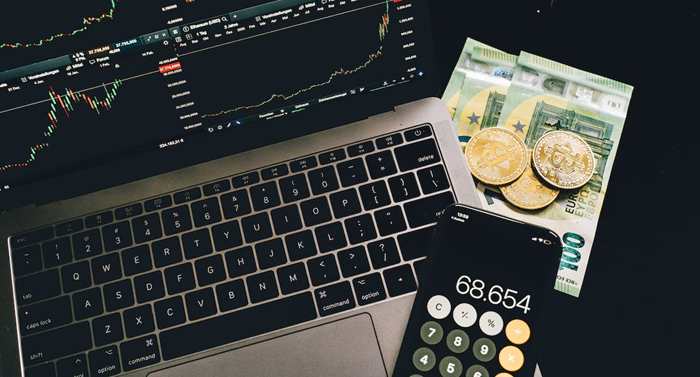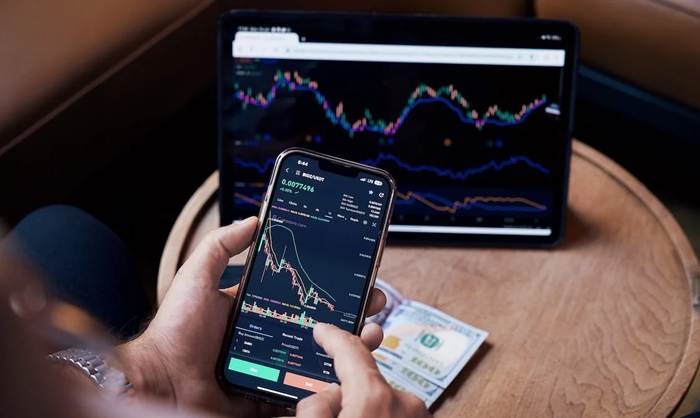The financial markets have undergone a remarkable transformation in recent decades, driven largely by the pervasive influence of technology and software. Gone are the days of frantic phone calls and bustling trading floors; today’s trading landscape is defined by algorithms, high-frequency trading, and cutting-edge software solutions. In this blog post, we’ll explore how software has become the driving force behind modern trading and the ways in which it has reshaped the industry.

Table of Contents
The Rise of Electronic Trading
One of the most significant developments in the world of finance has been the rise of electronic trading platforms. These platforms have replaced traditional methods and have become the backbone of modern financial markets.
Advances in software technology that made transactions faster, more effective, and more secure facilitated the shift towards electronic trading. In this context, you can find here the next candle prediction strategy that has gained prominence as traders leverage technology to make more informed decisions and improve their strategies.
Electronic platforms enable traders to buy and sell financial instruments with the click of a button from anywhere in the world. These platforms provide access to a wide range of assets, from stocks and bonds to commodities and cryptocurrencies, and they operate 24/7, allowing for continuous trading across different time zones. This accessibility and flexibility have democratized trading, making it more inclusive and open to a broader range of participants.
Algorithmic Trading
Algorithmic trading, or algo trading, is another area where software has had a profound impact. Algo trading involves the use of complex algorithms to execute strategies automatically. These algorithms can analyze vast amounts of data and execute trades at speeds that are impossible for human traders to match.
One of the key advantages of algo trading is its ability to remove human emotions from the process. Emotions like fear and greed can lead to irrational decisions and erratic behavior. Algorithms, on the other hand, follow predefined rules and logic, ensuring that decisions are based on data and analysis rather than emotions.
Algo trading is prevalent in both traditional and cryptocurrency markets. High-frequency trading (HFT) is a subset of algo trading that specializes in executing a large number of trades at incredibly high speeds. HFT firms use advanced software and hardware to gain a competitive edge by minimizing latency and executing trades faster than their competitors.
Risk Management and Compliance
Software also plays a crucial role in risk management and compliance within the trading industry. Risk management software helps traders and financial institutions assess and mitigate the various risks associated with their activities. These risks can include market risk, credit risk, operational risk, and more.
Through sophisticated risk models and real-time data analysis, risk management software can provide traders with insights into their exposure and help them make informed decisions. It can also trigger automated risk controls to limit losses and protect portfolios during volatile market conditions.
In addition to risk management, software is essential for ensuring compliance with regulatory requirements. Financial markets are subject to a complex web of regulations designed to protect investors and maintain market integrity. Compliance software helps financial institutions track and adhere to these regulations by automating processes such as trade reporting, record-keeping, and transaction monitoring.
Data Analytics and Machine Learning
The trading landscape is increasingly data-driven, and software is at the heart of this transformation. Trading firms and financial institutions use advanced data analytics and machine learning algorithms to gain insights from vast amounts of market data.
Machine learning models can analyze historical price data, news sentiment, and various other factors to identify patterns and trends. These insights can be used to develop strategies that have a higher probability of success. Machine learning algorithms can also be used for algorithmic trading, where they adapt and refine strategies based on real-time market conditions.
Additionally, software-driven data analytics can help traders assess market sentiment and make more informed decisions. Social media sentiment analysis, for example, can provide insights into how public sentiment may impact asset prices.
Market Access and Connectivity
Software is the conduit that connects traders to the global financial markets. Trading software provides access to various exchanges and liquidity pools, allowing traders to execute orders efficiently. It also ensures that trades are executed with minimal latency, which is crucial for high-frequency strategies.
Market access software is responsible for routing orders to the appropriate venues, monitoring market conditions, and providing traders with real-time market data. It also handles trade execution and settlement processes, streamlining the entire workflow.
The connectivity aspect of software extends to different asset classes and geographies. Whether a trader wants to buy shares of a tech company in the U.S. or speculate on the price of gold in London, software enables them to access and trade in a wide range of markets with ease.
Conclusion
The trading landscape has evolved significantly due to the transformative power of software. Electronic platforms, algorithmic trading, risk management, compliance software, data analytics, and market access solutions have become integral parts of the modern ecosystem. These advancements have increased market efficiency, reduced costs, and opened up new opportunities for traders and investors.


![What is Mifi, How Mifi Works and How to Use It? [2025] What is Mifi, How Mifi Works and How to Use It](https://techmaina.com/wp-content/uploads/2020/10/What-is-Mifi-How-Mifi-Works-and-How-to-Use-It.jpg)

![NTFS Vs FAT32: Difference Between NTFS And FAT32 [2025] NTFS Vs FAT32 Difference Between NTFS And FAT32](https://techmaina.com/wp-content/uploads/2021/03/NTFS-Vs-FAT32-Difference-Between-NTFS-And-FAT32-218x150.jpg)
![How to Permanently Delete Instagram Account [2025] How to Permanently Delete Instagram Account](https://techmaina.com/wp-content/uploads/2021/11/How-to-Permanently-Delete-Instagram-Account-100x70.png)
![How To Fix: Steam Content File Locked Error [2025] How To Fix Steam Content File Locked Error](https://techmaina.com/wp-content/uploads/2020/09/How-To-Fix-Steam-Content-File-Locked-Error.jpg)
![How To Fix: Steam Not Opening Error In Windows [2025] How To Easily Fix Steam Not Opening Error In Windows 10](https://techmaina.com/wp-content/uploads/2021/02/How-To-Easily-Fix-Steam-Not-Opening-Error-In-Windows-10-100x70.jpg)
![How to Easily Fix Origin Won’t Open or Not Respond [2025] How to Easily Fix Origin Won’t Open or Respond](https://techmaina.com/wp-content/uploads/2020/07/How-to-Easily-Fix-Origin-Won’t-Open-or-Respond.jpg)
![How to Activate Cortana In Windows 10 [2025] How to Activate Cortana In Windows 10](https://techmaina.com/wp-content/uploads/2021/01/How-to-Activate-Cortana-In-Windows-10.jpg)